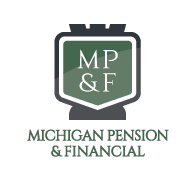Plans We Support
Plans We Support
The following is a list of plans we support, including their descriptions, advantages, and benefits.
401(k), including Roth & Safe Harbor
A 401(k) plan is a defined contribution (DC) plan, typically a profit sharing plan that contains a cash or deferred arrangement as described in section 401(k) of the Internal Revenue Code. A cash or deferred arrangement is simply one that allows plan participants to elect to defer a portion of compensation, their elective deferrals, and have it contributed to the plan on their behalf, typically through payroll withholding.
The employer may contribute to the plan by matching all, or a portion, of the elective deferrals or by making non-elective, or profit sharing, contributions to all eligible participants.
401(k) Plans are Ideal for:
- Employers who are initiating a plan due to employee demand
- Employers wishing to maximize contributions
- Employers wishing for discretionary contributions
Defined Benefit
A Defined Benefit plan (DB) is considered a traditional pension plan because it guarantees a monthly pension benefit for the life expectancy of the participant. A DB plan does not maintain account balances to reflect the accrued benefit of each participant, but must define a benefit formula and how the benefits are accrued under that formula. This type of plan favors older employees with longer terms of service.
Defined Benefit Plans are Ideal for:
- Business owners who are older and have more service than other employees
- Business owners wishing to maximize contributions
- Companies wishing to replace a certain percentage (e.g., 70 percent) of pre-retirement income for their employees
- Companies with substantial financial resources
- Companies with stable, predictable income
Cash Balance
A Cash Balance plan is a type of Defined Benefit plan. By taking advantage of age and salary differences, a Cash Balance plan tilts contributions towards a desired employee or group of employees.
However, unlike a traditional Defined Benefit plan, a Cash Balance plan provides a “hypothetical” account balance for the participants which accrues interest at a pre-defined government rate.
Cash Balance Plans are Ideal for:
- Business owners who are older than some of the staff employees
- Business owners desiring larger contributions for certain classes of employees
- Companies with substantial financial resources
- Companies with stable, predictable income
It should be noted that, in the right circumstances, Cash Balance plans provide the greatest allowable annual contributions to business owners of all the different types of qualified retirement plans.
Solo K
The one-participant 401(k) plan isn’t a new type of 401(k) plan. It’s a traditional 401(k) plan covering a business owner with no employees, or that person and his or her spouse. These plans have the same rules and requirements as any other 401(k) plan.
Solo K Plans are Ideal for:
- A business owner with no common-law employees
- A business owner who wishes to cover his or her spouse
- A business owner who wishes to make higher contributions than allowed in a SEP or Simple IRA
Profit Sharing
A Profit Sharing plan is a Defined Contribution plan that provides employees with contributions made by their employer. In its basic form, this type of plan is the easiest to administer. The employer has discretion to determine when and how much the company pays into the plan. Unlike a 401(k) plan, there are no employee contributions to a Profit Sharing plan, nor do the employees have discretion or control over the investment choices for their account as investment discretion if managed at the employer/business owner level.
Profit Sharing Plans are Ideal for:
- Business owners who wish to have flexible contributions year-to-year to align with profitability
- Companies where cash flow may be an issue
- Companies that do not wish to offer employee contributions
Cross-Tested
A Cross-Tested plan is a hybrid plan that combines features of both Defined Contribution and Defined Benefit plans and which generally skew the employer contributions in favor of the older, higher paid employees. These plans provide the ability to create multiple benefit levels and provide for flexible formulae for the allocation of contributions across all employees.
Cross-Tested Plans are Ideal for:
- Business owners who are older than the majority of employees
- Business owners desiring larger contributions for themselves and possibly other key employees
- Employers desiring flexible contributions

